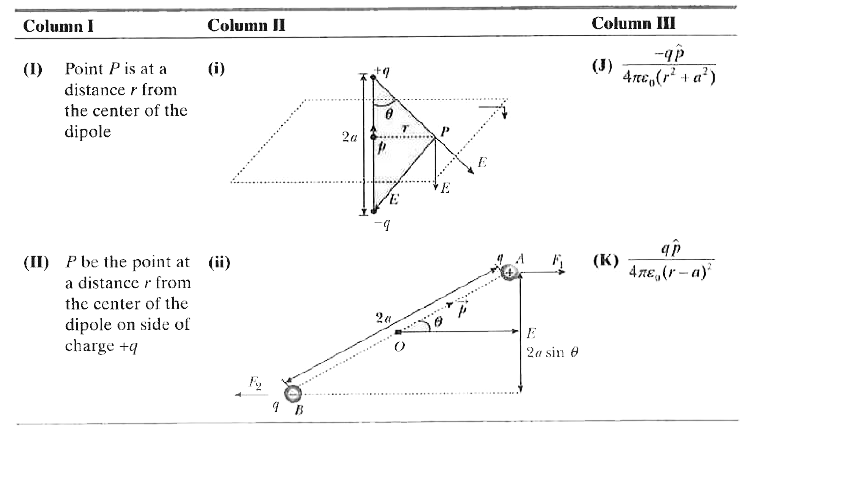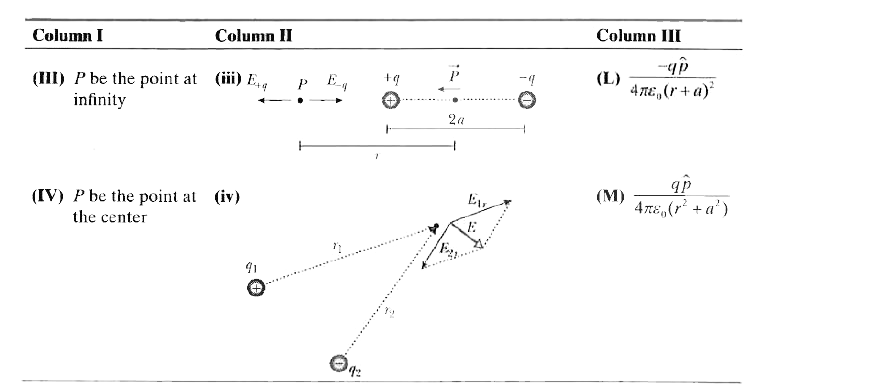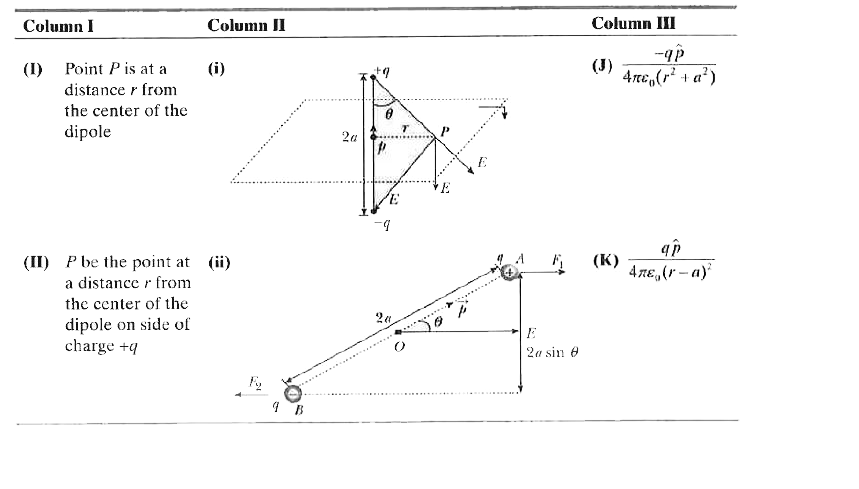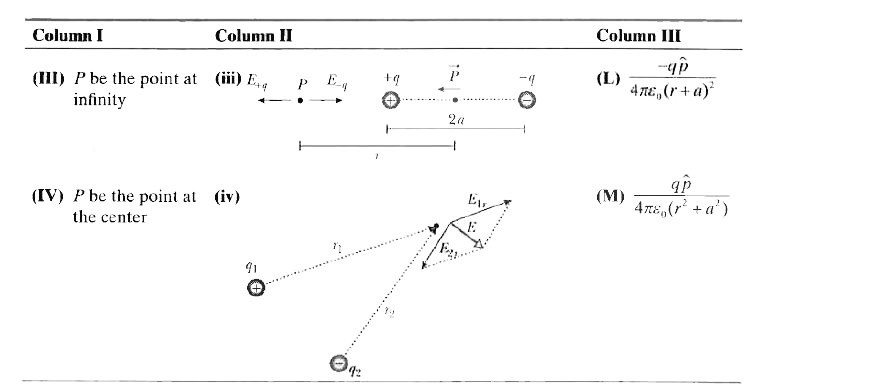An electric dipole is the combination of two equal and opposite charges q and -q, respectively, separated by distance 2a. There are different points where we can find electric field due to the electric dipole. In the given table, column 1 shows different positions of point where we have to find electric field due to dipole, column 2 shows the figure of dipole with different positions of point where we have to find the electric field and column 3 shows the value or final formula of the electric field of different positions of the point.
when point P lies on the equatorial plane of the electric dipole, electric field due to +q is ?


A
(III) (ii) (L)
B
(IV) (i) (M)
C
(III) (iii) (J)
D
(I) (i) (M)
Text Solution
The correct Answer is:D
|
Updated on:21/07/2023
Topper's Solved these Questions
- BOOK - RESNICK AND HALLIDAYCHAPTER - ELECTRIC CHARGES AND FIELDSEXERCISE - Practice Questions (Integer Type )3videos
ELECTRIC CHARGES AND FIELDS
- BOOK - RESNICK AND HALLIDAYCHAPTER - ELECTRIC CHARGES AND FIELDSEXERCISE - Practice Questions (Linked Comprehension)5videos
ELECTRIC CHARGES AND FIELDS
- BOOK - RESNICK AND HALLIDAYCHAPTER - ELASTICITYEXERCISE - PRACTICE QUESTIONS (Integer Type)3videos
ELASTICITY
- BOOK - RESNICK AND HALLIDAYCHAPTER - ELECTRIC POTENTIALEXERCISE - (PRACTICE QUESTIONS) Integer Type1videos
ELECTRIC POTENTIAL
Similar Questions
Knowledge Check
- Question 1 - Select One
An electric dipole is the combination of two equal and opposite charges q and -q, respectively, separated by distance 2a. There are different points where we can find electric field due to the electric dipole. In the given table, column 1 shows different positions of point where we have to find electric field due to dipole, column 2 shows the figure of dipole with different positions of point where we have to find the electric field and column 3 shows the value or final formula of the electric field of different positions of the point.
When point P lies on the axis of the electric dipole, electric field due to -q is ?

 A(III) (ii) (L)B(II) (iii) (L)C(II) (iii) (J)D(I) (i) (K)
A(III) (ii) (L)B(II) (iii) (L)C(II) (iii) (J)D(I) (i) (K) - Question 2 - Select One
Electric field due to an electric dipole is
Aspherically symmetricBcylindrical symmetricCasymmetricDnone of the above - Question 3 - Select One
Electric field due to an electric dipole is
Aspherically symmetricBcylindrical symmetricCasymmetricDnone of the above
Electric Field Due to Dipole|| Electric Potential Due to Dipole
View SolutionElectric Field Due To An Electric Dipole At A Point On The Axial Line
View SolutionThe distance of the field point, on the equatorial plane of a small electric dipole, is halved. By what factor will the electric field, due to the dipole, change?
View SolutionElectric Field Due to Electric Dipoles || Potential Due to Dipole || Examples on Dipoles
View SolutionElectric field intensity (E) due to an electric dipole varies with distance (r) from the point of the center of dipole as :
View Solution

